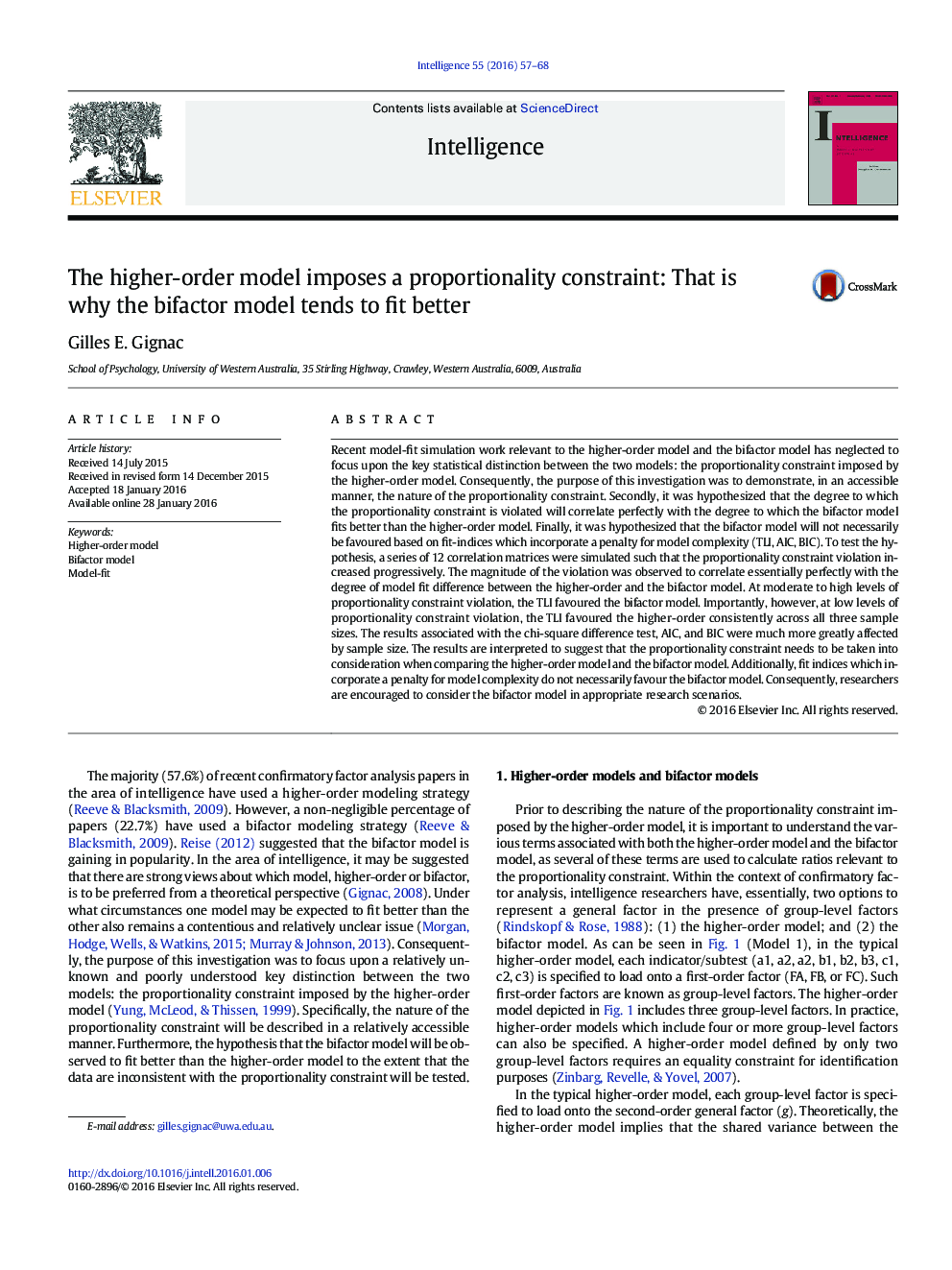| Article ID | Journal | Published Year | Pages | File Type |
|---|---|---|---|---|
| 7293381 | Intelligence | 2016 | 12 Pages |
Abstract
Recent model-fit simulation work relevant to the higher-order model and the bifactor model has neglected to focus upon the key statistical distinction between the two models: the proportionality constraint imposed by the higher-order model. Consequently, the purpose of this investigation was to demonstrate, in an accessible manner, the nature of the proportionality constraint. Secondly, it was hypothesized that the degree to which the proportionality constraint is violated will correlate perfectly with the degree to which the bifactor model fits better than the higher-order model. Finally, it was hypothesized that the bifactor model will not necessarily be favoured based on fit-indices which incorporate a penalty for model complexity (TLI, AIC, BIC). To test the hypothesis, a series of 12 correlation matrices were simulated such that the proportionality constraint violation increased progressively. The magnitude of the violation was observed to correlate essentially perfectly with the degree of model fit difference between the higher-order and the bifactor model. At moderate to high levels of proportionality constraint violation, the TLI favoured the bifactor model. Importantly, however, at low levels of proportionality constraint violation, the TLI favoured the higher-order consistently across all three sample sizes. The results associated with the chi-square difference test, AIC, and BIC were much more greatly affected by sample size. The results are interpreted to suggest that the proportionality constraint needs to be taken into consideration when comparing the higher-order model and the bifactor model. Additionally, fit indices which incorporate a penalty for model complexity do not necessarily favour the bifactor model. Consequently, researchers are encouraged to consider the bifactor model in appropriate research scenarios.
Keywords
Related Topics
Social Sciences and Humanities
Psychology
Experimental and Cognitive Psychology
Authors
Gilles E. Gignac,
